An Iowa prof. recalls Israeli soldiers occupying her childhood home. Now, she's asking for peace.
Even 22 years later, the experience is difficult to discuss.
Armed Israeli soldiers patrolled the streets of her Palestinian hometown in 2002, many of them just 18 or 19 years old. Tanks were regularly seen.
An eleven-year-old, Deema Totah, now a professor at the University of Iowa, was watching TV with her 8-year-old sister and her parents when they were disrupted by a knock at their home in Ramallah in the West Bank in the State of Palestine.
Israeli soldiers had been in town throughout that spring morning. Rumors swirled about a possible Israeli occupation, digital journal entries by Totah's father dated March 29 indicate.
That rumored occupation was unfolding at the doorstep of the Totah's home.
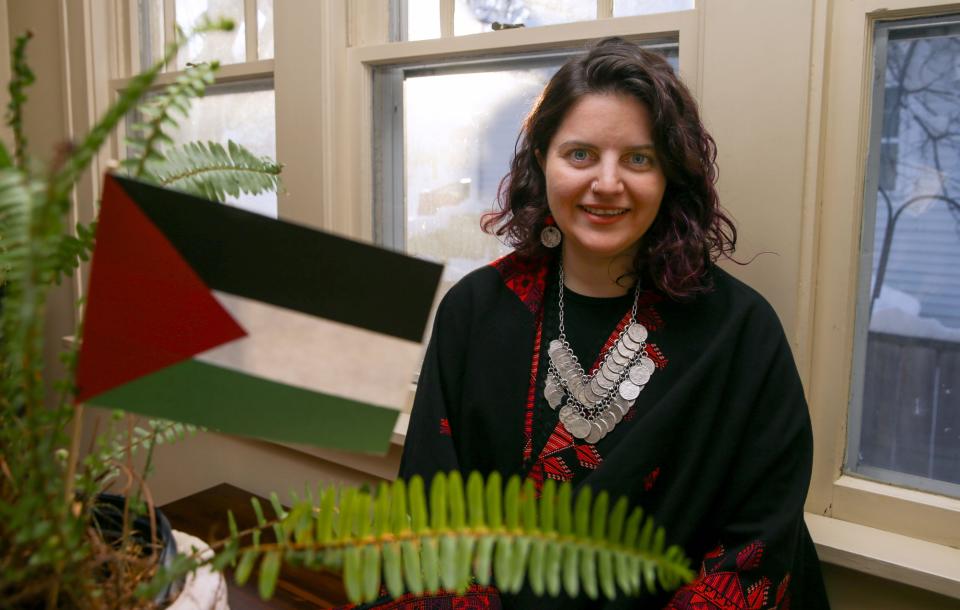
In broken Arabic, Totah recalls the soldiers yelling, "Open the door or we will shoot."
Her parents, unsure of what could happen if they didn't open the door — or if they did — slowly opened the front door. Outside, a large group of Israeli soldiers surrounded the building.
Deema's mother led her two daughters to the basement, a space the family would commonly retreat to under the threat of bombings or gunfire. Deema held on to Reem, her sister, "as tight as she could" as she cried.
Soldiers searched the family home upstairs as her parents looked on.
"A few minutes later, we heard a barrage of gunshots and had no idea where our parents were," Totah said.
She began to cry as the fear and shock set in. She later found out, from her father's written recollections, that soldiers "were shooting from inside the house in all directions," a common Israeli army tactic when they invaded a home.
"We heard rumors later that sometimes when they decide that they're going to stay in a house, take over houses as their military base for a little bit, they do this," Totah said. "They announce their presence in the neighborhood by shooting outside the windows. I'm not sure of how accurate that is. That's what I heard."
More: Iowa Board of Regents president announces resignation with three years left on term
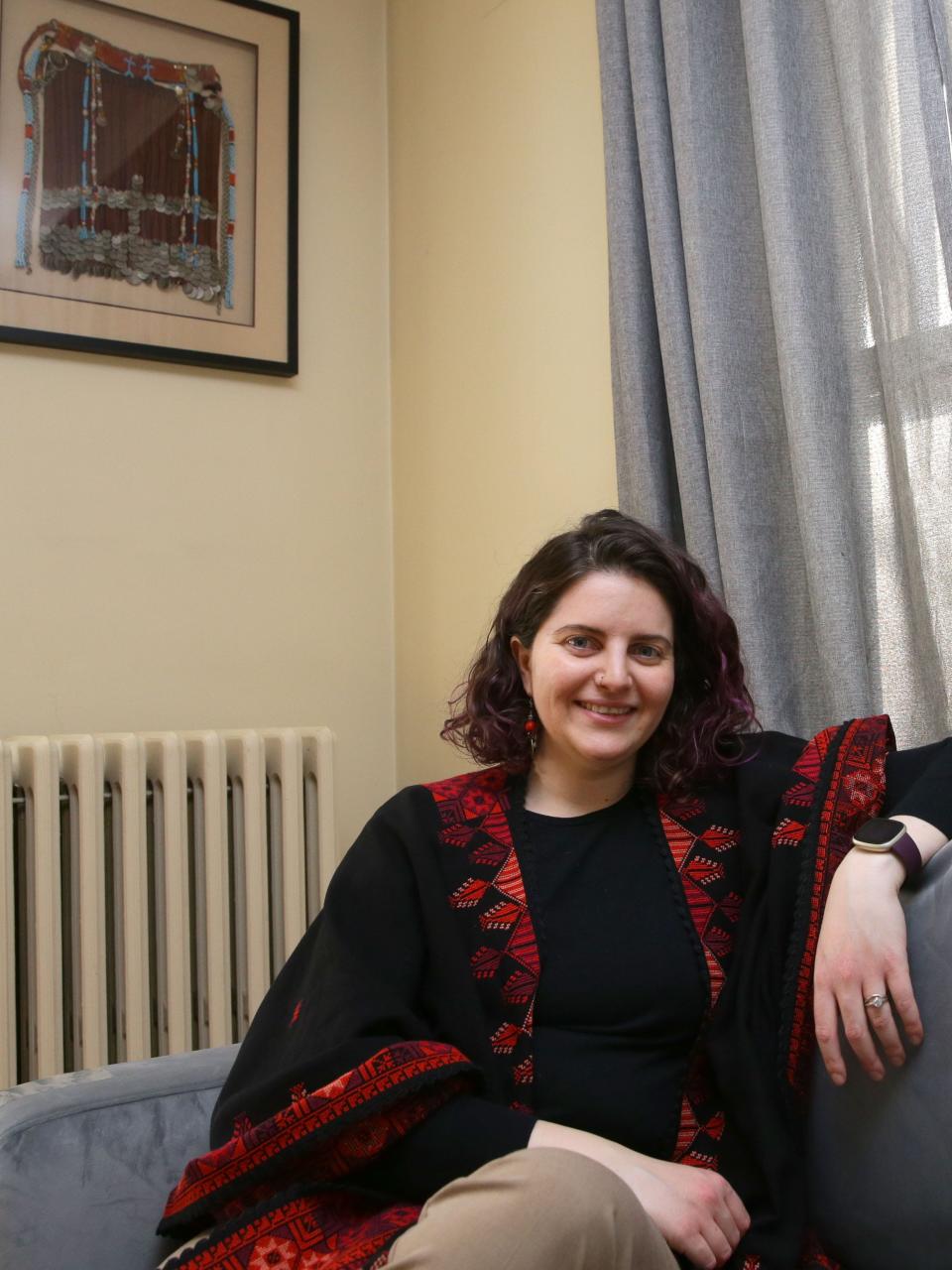
Local professor advocates for peace
Totah moved to the US at the age of 18 to attend college. She completed her undergraduate studies at MIT and obtained a master's degree and a doctoral degree in mechanical engineering from the University of Michigan.
Totah is an assistant mechanical engineering professor at the University of Iowa and lives in Iowa City with her husband, a mechanical engineering professor at the same university. She's lived in Johnson County since 2021.
Totah, whose parents are dual American and Palestinian citizens and still live in Ramallah, spent her childhood in the Palestinian city. Her parents still reside in the same house that Israeli soldiers invaded in 2002, where they operate their computer company, Bisan Systems.
Totah advocates for peace in Palestine, where she still has strong family ties. She's spoken at local council meetings and attended protests organized throughout Johnson County.
She is also the co-founder of Iowa City Action for Palestine.
More: Iowa City City Council approves resolution supporting ceasefire in Palestine, Israel
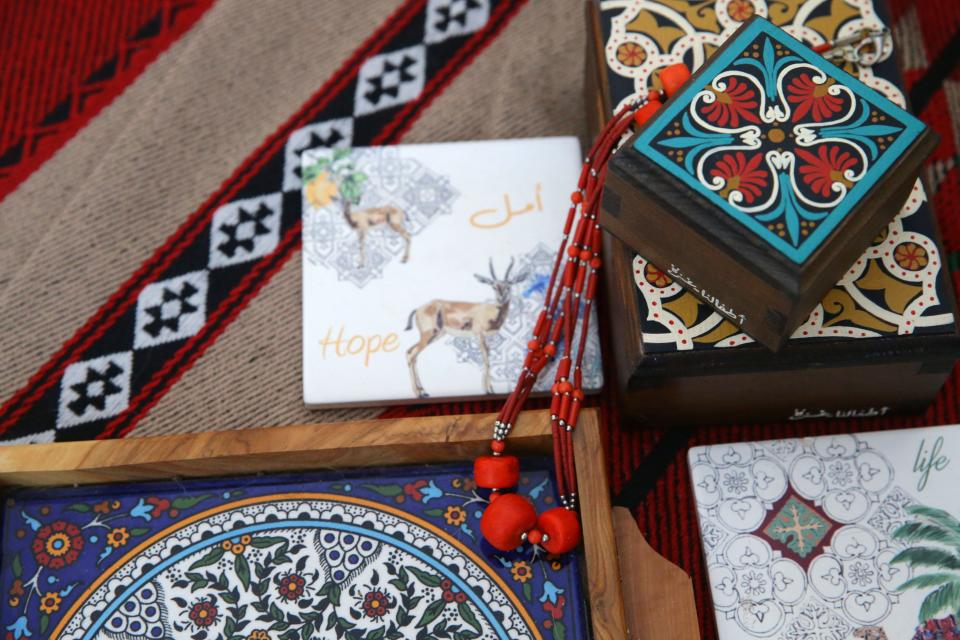
Captives in their own home
Totah's memories of that dark spring morning 22 years ago remain rather vivid. A night of refuge in the basement bled into the next morning and several days after.
"A soldier was at the top of the stairs in the basement stationed at all times with a view of us," Totah said. "We could not get out of view of the soldier."
The Totahs could only leave the basement with solider permission, which meant they were escorted upstairs to get food and water or to make a morning coffee.
The soldiers allowed the family to bring down a single mattress for the family of four to share.
"We all slept on the floor, but my parents did not sleep," Deema Totah said. "I remember my dad napping a little bit and my mom napping a little bit while the other one would be watching over us."
As the hours ticked away, tanks drove through town. Soldiers shuffled upstairs. Frustration was growing.
"We estimated there were around 60 soldiers lodging in our house," Marwan Totah later wrote in the digital journal. "And our kitchen became the operations room for the area, for the lower part of Ramallah."
The soldiers did show some leniency and even allowed Samia, Deema's mother, to grab some games for the girls. Deema remembers her mother using the games as a subtle teaching tool.
"She told us to yell, 'Bingo!' whenever one of us got bingo, to just show them we're not afraid, to show them we're happy, to show them we're okay, that they won't get to us, they won't oppress us," Deema Totah said.
Only one of the many soldiers in the home spoke English and was the main line of communication between the primarily Arabic-speaking Totah family and the almost entirely Hebrew-speaking Israeli soldiers. As the family passed the time by playing games, the English-speaking soldier, whom Deema estimates was among the youngest in the whole group, kept asking "Are you okay?"
Over and over, he asked, "Are you okay?"
Samia eventually snapped.
"No, we are not okay," she said, releasing pent-up frustration. "Would you be okay if 60 soldiers took over your home, started shooting inside the house and terrorized your children?"
The same English-speaking soldier asked Deema why she and her sister were not in school. Israeli martial law in the area meant that no one in Ramallah was safe to leave their homes, Deema Totah recalls.
"It's ridiculous that he's asking me this question," she said, remembering her emotions. "It's clear to me he (didn't) know what he (was) doing. He (didn't) understand the orders (he'd) been given."
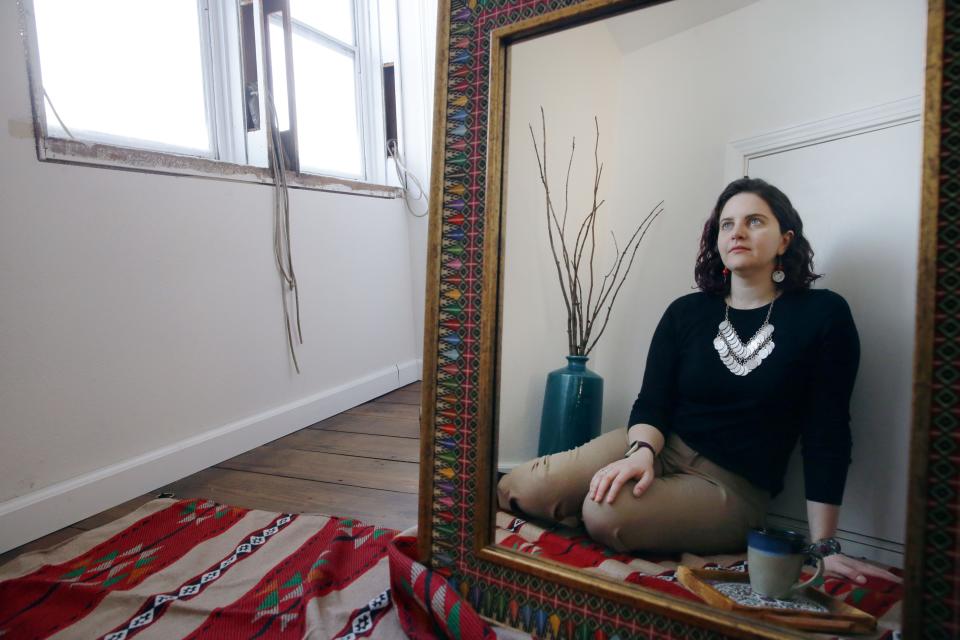
A new lease on home life
The Israeli soldiers announced they were leaving well over two days after they first knocked on the door.
The Totahs were once again free to move throughout their home.
"The girls woke up with all the moving and rattling upstairs, and we told them that they are preparing to leave, no expression, complete silence,… I wondered how this incident will stay part of our daughters’ life, and how it will change their perception of the whole conflict," Marwan Totah journaled.
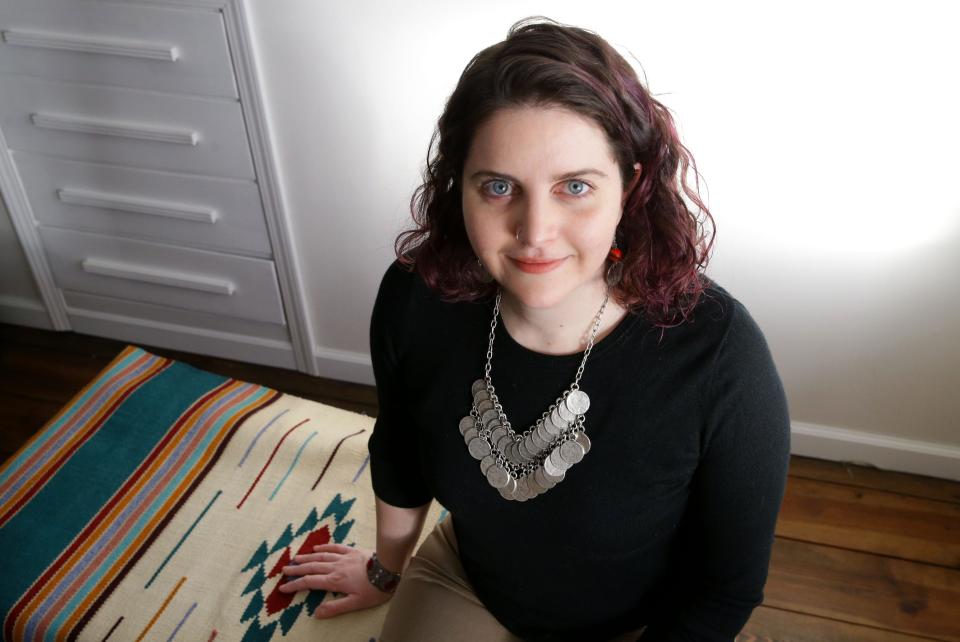
The Totahs cleaned their house for several days after. They had survived, even if home did not feel like anything close to an actual home.
Some in Ramallah were not nearly as lucky.
Deema asks for equal support
As an adult American citizen, Totah has voiced her frustration with today's U.S. government and others around the world who she said are hesitant to support Palestine while backing Israel during the latest Israel-Hamas war.
"There are so many people joining the call for peace, for humanity," Totah said. "I've been through so much oppression and (Palestinians) are asking for equality. They're not asking for much."
She laments the use of U.S. money, which she said is financed in some small part by herself. She said the money is given to Israel and is being used by the Israeli army to harm people and places she knows and loves. But, there are some positives — however small — that have come from the ongoing Israel-Hamas war, Totah admitted.
They've shaped her view and connected her to many different walks of life.
"Here in Iowa City, just working on the resolution even and going to protests locally. I have met people from all walks of life. I have seen solidarity from a very strong local Jewish presence here," Totah said. "I have received so much love and solidarity from so many people here. And so while I'm so disappointed by our government, I believe in the American people and I believe in Iowans."
Ryan Hansen covers local government and crime for the Press-Citizen. He can be reached at rhansen@press-citizen.com or on X, formerly known as Twitter, @ryanhansen01.
This article originally appeared on Iowa City Press-Citizen: Palestinian-American professor remembers Israeli invasion 20 years later

